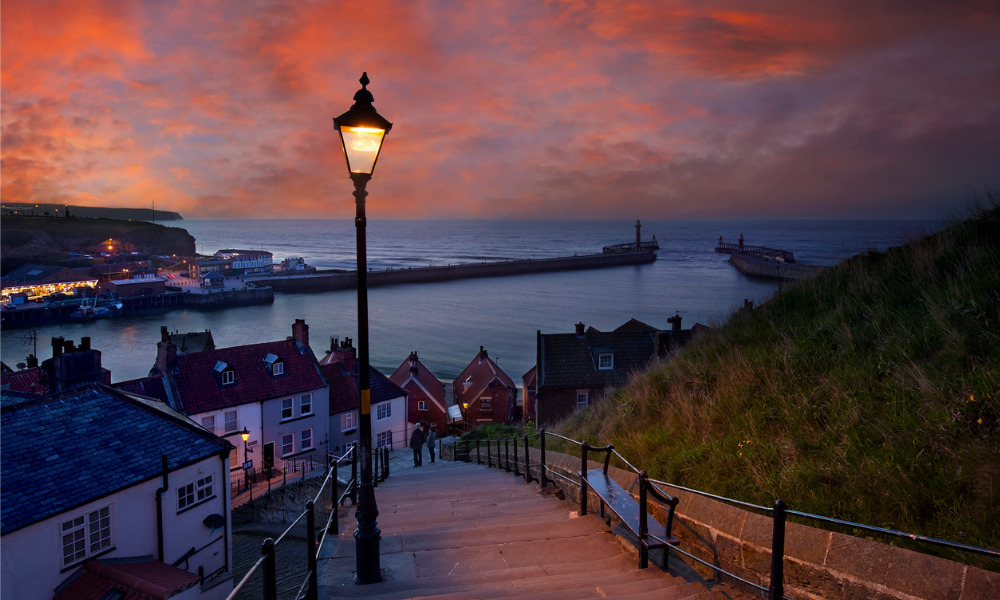Coastal hotspot latest to draw line in the sand

Residents of the North Yorkshire coastal resort of Whitby have voted by an overwhelming majority to ban the sale of new build properties to second homeowners.
A total of 2,339 people turned out to vote in the non-binding referendum to restrict the sale of new-build and additional housing to full-time residents, with 2,111 votes in favour and 157 against.
The question put to voters was: “Should all new build and additional housing in Whitby Parish be restricted to full time local occupation as a primary residence only and forever (in perpetuity)?”
Scarborough Borough Council, which controls planning in Whitby, has reportedly agreed to adopt the ban on second homeowners buying new build properties in the resort, which means it could become effective by the end of the year.
Whitby has become the latest in a growing list of tourist hotspots around the UK to ban or restrict the sale of second homes to non-residents following widespread fears that spiralling property prices are pricing local people out of the housing market.
According to reports, Whitby experienced the second highest price increases of any coastal resort in the country last year, up by 17% and second only to Padstow in Cornwall, with up to 28% of all homes in the fishing port being classed as second homes or holiday lets.
While the average property price is reportedly around £255,000, according to the Rightmove property website, most local people are said to earn an average of £18,900 a year.
Read more: Second homes as holiday lets
Town and borough councillor Alf Abbott told The Independent newspaper that it was “the number one concern for everyone in this town”.
He said: “There are no homes for local people anymore. And when they do become available, the prices are sky high because there is so much demand from people wanting holiday homes.”
He added that Whitby – which famously featured in Bram Stoker’s classic horror novel, Dracula – was like a ghost town off season.
He told the paper: “We’re starting to see entire streets and neighbourhoods where, once you get to winter, it’s just one person or one family living amid empty homes. You go to the Whitehall Landings apartments, and it’s about 15 out of 150 apartments that are lived in full time. It’s deserted in January.”
Resident Michael Smith told ITN news that as he could no longer afford to buy in the area, he had moved 20 miles away to the town of Guisborough, despite being Whitby “born and bred”.
Others, like Andrea Tyreman, expressed deep resentment towards ‘southeners’, accusing them of destroying the local community by snapping up almost all the properties on her street.
Read more: Gove closes holiday let loophole for owners of second homes
The Guardian quoted a local estate agent who said about 75% of properties on its books were sold to investors or as second homes.
Mortgage Introducer reached out to five local estate agents in Whitby for their views on the issue, but all except one declined to comment.
Leo Thai, the managing director at Jackson Estate Agents in Whitby, said he welcomed the referendum as it would help to open a wider debate about the issue.
He said: “I’m very glad that it’s been brought to the table and it’s being discussed because we do have a genuine, long-term problem on our hands if this is not addressed.
“A lot of people in this town appreciate the tourism industry and that people want to invest in property, but they just want to see some kind of fairness.
“A lot of people that buy holiday cottages have said they are looking long-term with the view to maybe living in them themselves. But if you have a situation like that and you have nowhere for the workers to live, they won’t come and work in the town.”
The problem was compounded because Whitby’s rental market was not an option for most local people, either.
“You find that maybe one or two properties come on a month in Whitby, but for a town where you’ve got 13,000 full-time residents, it’s very difficult,” he added.
Nonetheless, he said he understood why investors bought properties to let. “What I’m hearing quite a lot is if somebody’s got £300,000, as brutal as it sounds, they’ll come in and say ‘it’s doing nothing for me in the bank, there’s no return on my investment – I’d rather have it in property. Lockdown has affected us, and I want to spend more time with the family’.”
Whitby joins St Ives, Fowey and Mevagissey in Cornwall in banning second homes, but other local authorities in coastal areas are also exploring the possibility of adopting similar policies, including Brighton.
In response, the government recently included proposals in the Queen’s Speech to charge double the rate of council tax for second homes, that is, properties which are furnished but not the owner’s sole or main residence.



